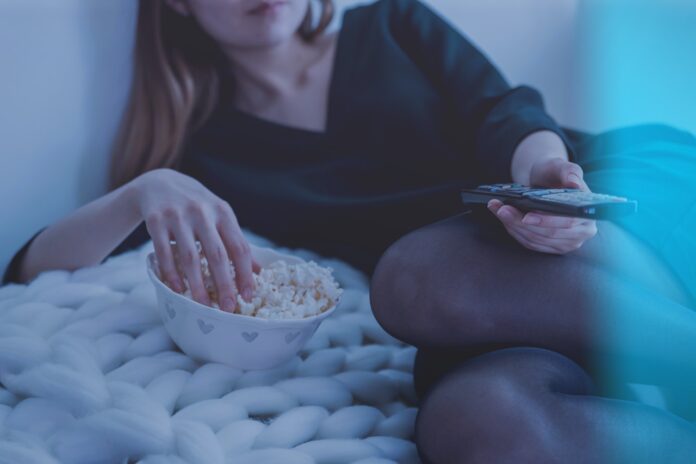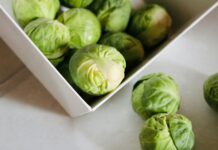8 unexpected foods guaranteed to help you sleep better
From popcorn to kiwi fruit, here’s what to eat before you hit the sack
If you struggle to stay asleep during the night or find yourself tossing and turning, sleep experts at Amerisleep have revealed some easy ways to tackle the problem.
While stress, illness, medications, and jet lag can make it harder to nod off, lifestyle choices can also have a huge impact on our sleep quality, causing fatigue, moodiness, and low motivation the next day.
The amount of natural light we are exposed to throughout the day, the amount of exercise we get, and the foods we eat all play a huge role when it comes to sleep.
Amerisleep health expert, Mary-Grace Taylor, said: “It’s true that countless people struggle with getting the seven to eight hours of nightly shuteye. But often, having trouble falling asleep or staying asleep is the result of a series of lifestyle choices that snowball together to yield night after night of tossing and turning.
“You probably know that steering clear of caffeine in the hours leading up to bedtime can significantly up your odds for having a good night’s sleep but sleeping well isn’t just about avoiding the wrong foods or drinks. Certain foods can actually help you sleep even better and stop you from being restless during the night.”
So which foods should we be eating before bedtime? Here are some that might just surprise you…
Popcorn
When air-popped and made with minimal oil, popcorn can be a healthy and satisfying snack. Two cups popped is only about 60 calories, and it brings satisfying carbohydrates, minerals, and polyphenol antioxidants. Drizzle it with a little coconut oil instead of butter to up the ante with lauric acid.
Low-fat cottage cheese
If you suffer from nighttime heartburn, snacking on high-protein, low-fat foods like cottage cheese before bed can help fight acid reflux. It’s also loaded with calcium, which helps regulate your body’s production of melatonin.
Cherries
They’re one of the few food sources of melatonin, which is why eating a bowl before bed might just help you conk out. But if the fruit isn’t in season, try a glass of tart cherry juice instead. Recent research from Louisiana State University found that drinking the stuff twice a day helps insomnia sufferers log 90 more minutes of snooze time.
Salmon
It might not be your first choice for a midnight snack, but dining on salmon for dinner could help you sleep more soundly. Recent British research found that having higher blood levels of DHA, the omega-3 fatty acid found in fatty fish, is associated with better sleep. But if you’re not a fan of fish, popping a 600-mg daily supplement is just as good.
Toast
We’ve all experienced that sleepy feeling that comes after chowing down on a carb-heavy meal. And now, experts are starting to understand why. Carbohydrates affect insulin levels, which appear to play a role in regulating your body’s sleep-wake clock, suggests a recent Japanese study done with mice. Of course, eating too much can lead to restless, interrupted sleep. So, skip the giant bowl of mac and cheese in favour of a lighter carb source, like one or two pieces of toast.
Kiwi fruit
Another sweet treat that can help you sleep are kiwis, which are rich in potassium, calcium, phosphorus, folate, magnesium and more. A study from Taiwan found that eating two kiwis an hour before bed significantly improved sleep.
Brazil nuts
One of the best sources of selenium, which is a micronutrient short sleepers tend to lack. These mega nuts also pack minerals like phosphorus and magnesium. Brazil nuts are especially good for vegetarians, since most other selenium sources are animal-based.
Bananas:
When you’re craving something sweet before you turn in, reach for one of the yellow fruits, which are rich in muscle-relaxing minerals like potassium and magnesium. Bananas also contain the amino acid tryptophan, which breaks down into melatonin and serotonin (both important neurochemicals for sleep regulation) in the brain.
What other things can help you get a good night’s sleep?
While food is important, it’s not the only factor to consider when trying to promote sleep. Here are some of our top tips.
Striving for a consistent sleep cycle: It can be frustrating when you sleep in during the weekend and are left wide awake on a Sunday night because you’re just not tired. However, while a Sunday morning lying is lovely, keeping a regular sleep routine is key, as your body needs consistency to maintain a healthy sleep-wake cycle.
Exercising: According to behavioral sleep medicine expert Dr. Jade Wu, Ph.D. of Duke University, being active during the day helps to build up homeostatic sleep drive, which is essential for getting good sleep at night.
“The homeostatic sleep drive is like a balloon–it starts out empty in the morning and builds throughout the day,” Dr. Wu says. “The bigger your balloon is at bedtime, the more likely you are to get solid, good quality sleep. Exercising helps to fill your balloon–the more, the better.”
Getting more natural night: To increase your odds of sleeping better, our experts recommend maximizing your exposure to daytime natural light and minimizing your exposure to night-time short wavelength light (i.e., blue light, or full spectrum lights) as much as possible.
You can start by lifting the shades or blinds in your bedroom as soon as you wake up, and by sitting near windows or spending time outdoors during the day.
Credit to amerisleep.com who carried out the research.
Help keep news FREE for our readers
Supporting your local community newspaper/online news outlet is crucial now more than ever. If you believe in independent journalism, then consider making a valuable contribution by making a one-time or monthly donation. We operate in rural areas where providing unbiased news can be challenging. Read More About Supporting The West Wales Chronicle


























